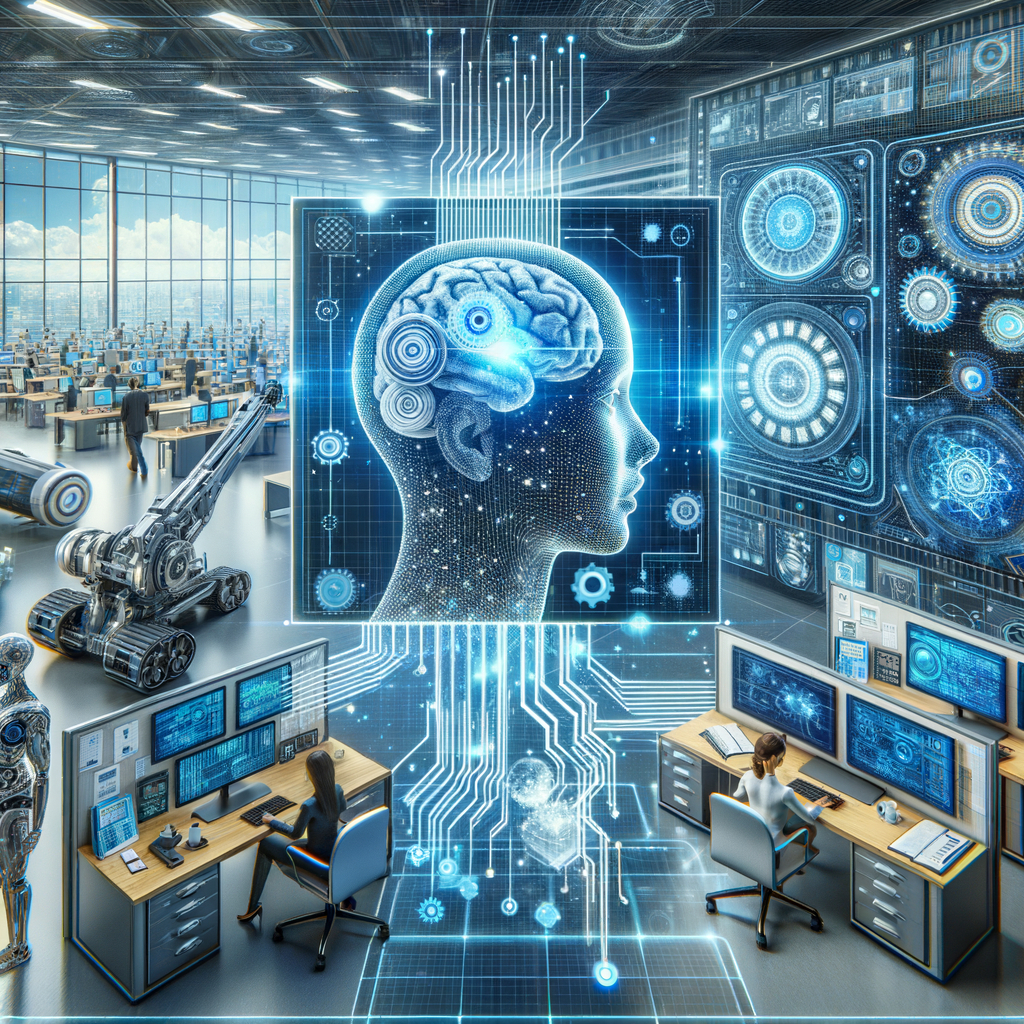Physical Address
304 North Cardinal St.
Dorchester Center, MA 02124
Physical Address
304 North Cardinal St.
Dorchester Center, MA 02124

In the ever-evolving technological landscape, one innovation that has undeniably left an indelible impact is artificial intelligence (AI). AI, with its myriad applications and potential, is transforming the way we do business. This article delves into the profound influence of AI on modern businesses and how it’s shaping our future.
AI has significantly improved customer service through chatbots and virtual assistants. These tools are capable of handling a variety of tasks such as answering frequently asked questions, booking appointments, and providing product recommendations. With their ability to operate 24/7, they offer a level of convenience that human agents cannot match. Furthermore, they can learn from past interactions to improve future responses.
Data is a critical asset for any business in this digital era. However, analysing vast amounts of data can be time-consuming and complex. This is where AI comes in handy. Machine learning algorithms can sift through enormous datasets at lightning speed to identify patterns and trends that would otherwise go unnoticed by human analysts. This information can then be used to make strategic decisions, predict market trends or understand customer behaviour.
From supply chain management to HR functions, AI has the potential to streamline various operational aspects of a business. For instance, predictive analytics can help businesses anticipate demand and manage inventory more efficiently while AI-powered recruitment tools can automate candidate screening processes thereby saving time and resources.
The use of AI isn’t just limited to improving existing processes; it also fosters innovation by enabling businesses to create new products or services that were previously unimaginable. For example, companies in the healthcare sector are using AI to develop personalised treatment plans based on a patient’s genetic makeup.
Despite its numerous benefits, the adoption of AI isn’t without challenges. One significant concern is the potential job displacement caused by automation. However, many experts argue that while AI may replace certain tasks, it will also create new jobs that require advanced skills. Furthermore, there are ethical considerations such as data privacy and bias in AI algorithms which need to be addressed.
Looking ahead, the role of AI in business is expected to expand even further. With advancements in technologies like quantum computing and neuromorphic engineering, we can expect more sophisticated AI systems that can solve complex problems and make decisions with minimal human intervention.
In essence, artificial intelligence has emerged as a game-changer in the business world. By automating mundane tasks, providing valuable insights from data analysis, enhancing customer service and fostering innovation, it offers substantial benefits to businesses willing to embrace it. However, it’s essential for companies to navigate its challenges carefully and consider the ethical implications of their AI practices.